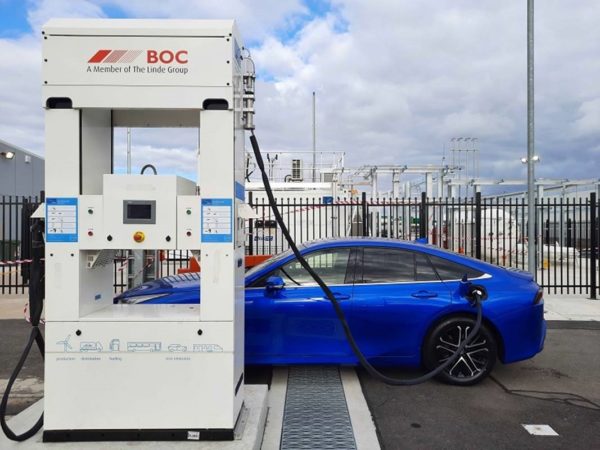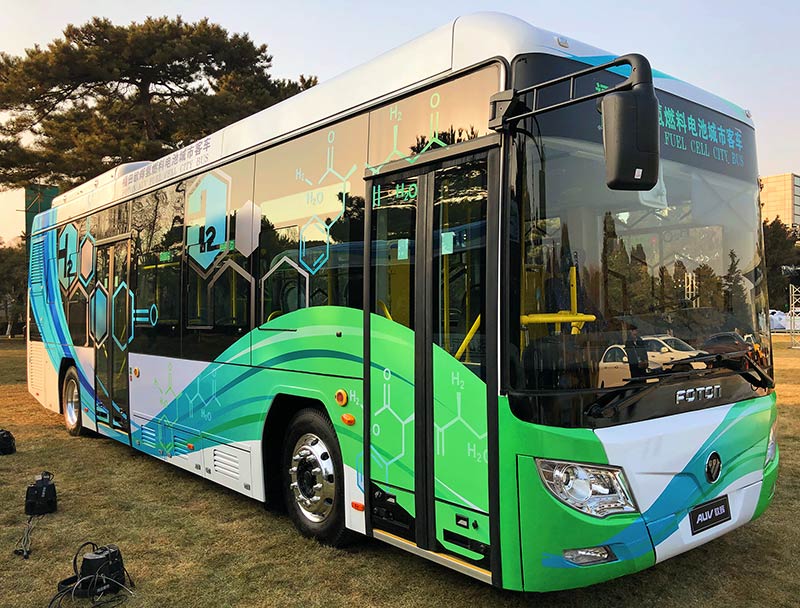The Australian division of Chinese vehicle manufacturer Foton Global, called Foton Mobility, has signed a new Memorandum of Understanding (MoU) with global gas giant BOC, owned by Linde.
The agreement will see the pair work together to develop operational and commercial hydrogen bus models “across the entire supply chain” including production, storage and refuelling, right through to leasing arrangements and maintenance.
Under the agreement, presumably BOC will focus on refuelling infrastructure, given that its parent company Linde has installed 200 hydrogen refuelling stations globally. This pivot from fossil gases to hydrogen follows a global trend among such companies, which are pushing to establish hydrogen vehicles in the transport sector ahead of electrified alternatives.
Foton, on the other hand, seems to be looking after the vehicle question, with its parent company Foton Global having deployed more than 600 hydrogen buses worldwide.

BOC
The partnership, the companies said in their news release on Tuesday, will develop pathways for scaling up hydrogen bus networks in Australia and New Zealand, as bus operators move from pilot hydrogen bus projects to “widespread uptake across public transport networks over the next decade.” The collaboration, they say, is needed to develop scalable, affordable hydrogen models.
Indeed there is a fair amount of interest in hydrogen buses in Australia, with the New South Wales government, Australia’s most populace state, saying it plans for a ‘good portion’ of its 8,000 strong bus fleet to run on hydrogen by 2030.
Foton are already well across this plan with Foton Mobility CEO Neil Wang telling pv magazine in January of last year that its ambition to supply NSW’s bus fleet transition.
Foton Mobility launched its hydrogen bus line in Australia in early 2021, beginning with a 12.5 metre low floor city bus powered by Toyota fuel cells.
Of course, the vehicles are not necessarily produced, nor run on, green hydrogen gas.
The companies are adamant hydrogen is preferable to electrification of buses though, saying they can be fuelled in 12 minutes, with one hydrogen refuelling station able to refuel 160 buses a day. Hydrogen buses have approximately 100 kilometres extra driving range than the typical electric bus, according to the companies.
“Hydrogen buses are already widely used around the world, with proven technology and infrastructure making it a viable option for the future,” Vesna Olles, Director Strategy and Clean Energy at BOC South Pacific said.
This content is protected by copyright and may not be reused. If you want to cooperate with us and would like to reuse some of our content, please contact: editors@pv-magazine.com.









By submitting this form you agree to pv magazine using your data for the purposes of publishing your comment.
Your personal data will only be disclosed or otherwise transmitted to third parties for the purposes of spam filtering or if this is necessary for technical maintenance of the website. Any other transfer to third parties will not take place unless this is justified on the basis of applicable data protection regulations or if pv magazine is legally obliged to do so.
You may revoke this consent at any time with effect for the future, in which case your personal data will be deleted immediately. Otherwise, your data will be deleted if pv magazine has processed your request or the purpose of data storage is fulfilled.
Further information on data privacy can be found in our Data Protection Policy.